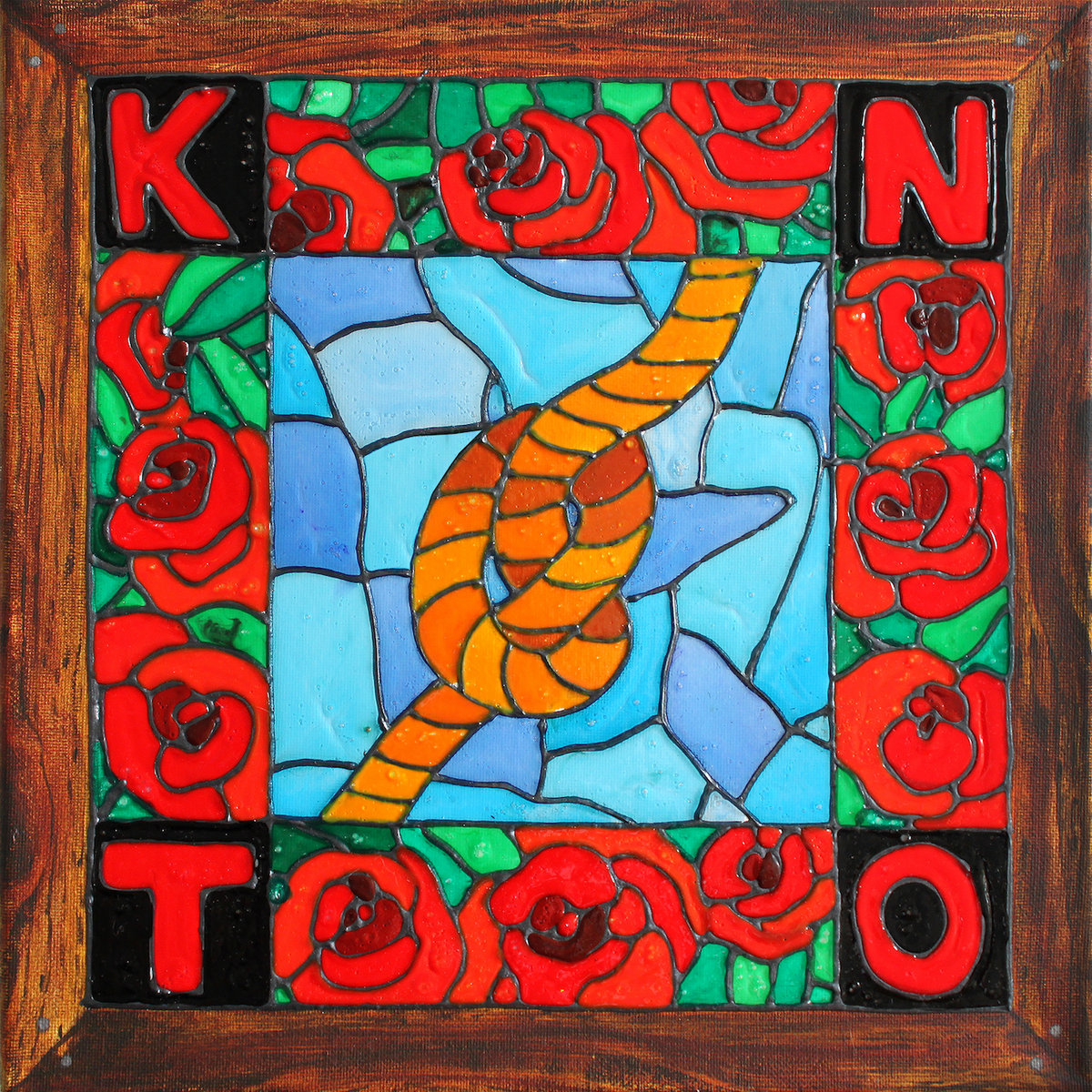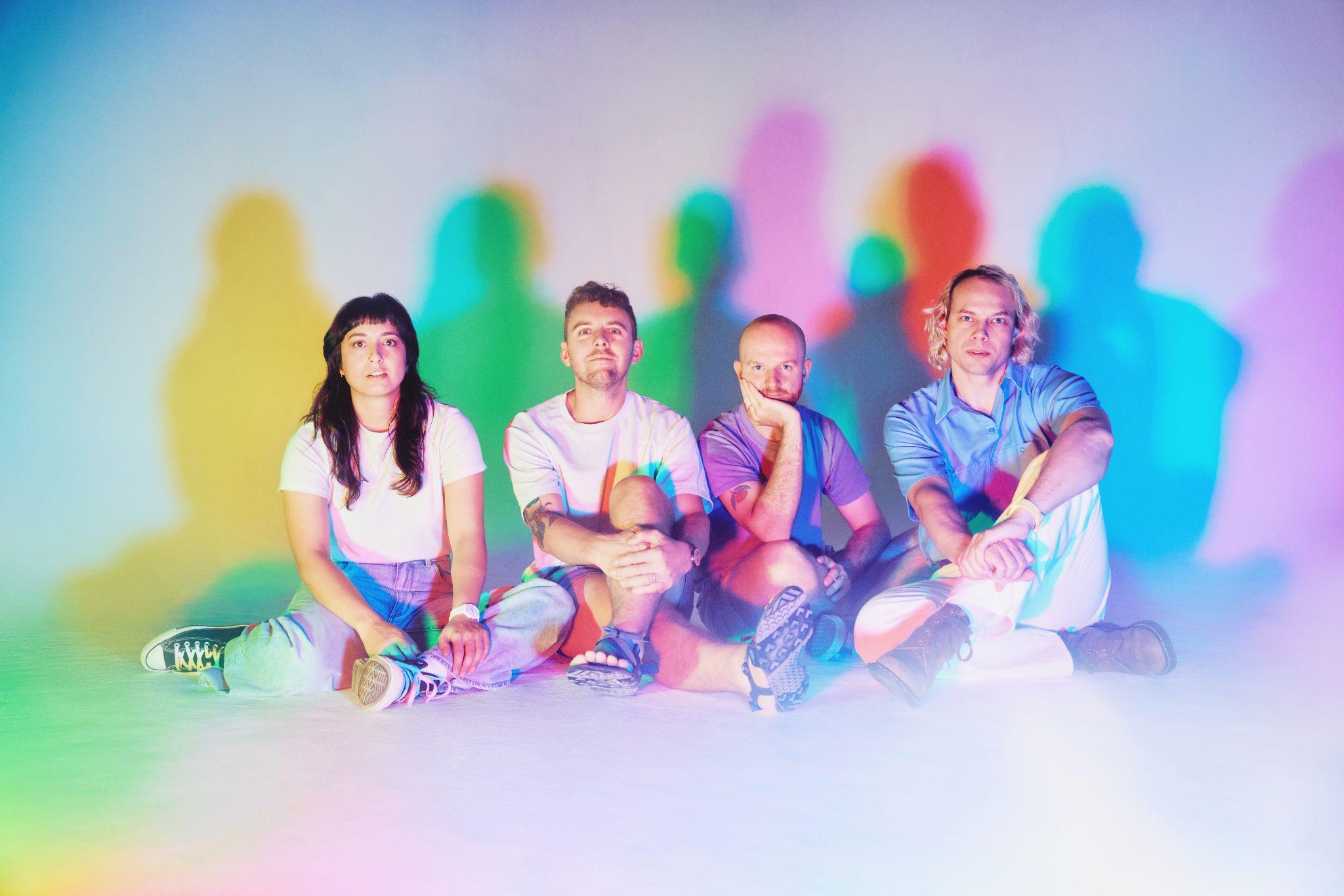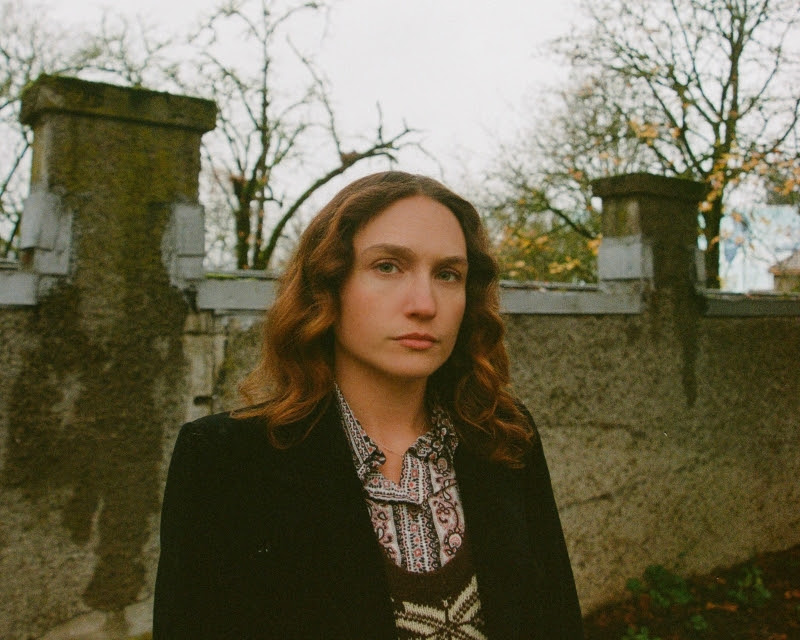If Krill was a project about how to be a better person in the world, then Knot is, for the most part, about how to make the world a better place for people. The shift from personal accountability to collective action occurred in the five years that Krill was away, from when the beloved Boston band announced their break-up to when they reformed as Knot, plus one new member. The group no longer all live in the same location but sound more united than ever, disparate people with the same goal. In Knot's case, that's making killer music, with inquisitive lyrics and a creeping sense of unease. The songs on their self-titled debut album are about how hard it is to envision coming together when everything is so distorted.
The riffs are heavy, the drumming is complicated but never overwhelms. Everything fits exactly where it should. Some of the histrionics of Krill are sanded down; the songs are more considered and thoughtful in how they're arranged, a logical continuation of the more ambitious, proggy compositions they were working with on A Distant Fist Unclenching and their post-breakup self-titled EP. In a way that mirrors their geographic separation, each instrument sounds highlighted equally, until they all coalesce in a whole that's greater than the sum of its parts. The album was put together separately and then recorded in just one weekend. Each song is structured in a way mirrors what the band argues for: equanimity, a world in which we're stronger together than we are apart.
[articleembed id="2090834" title="10 Best Krill Songs" image="2096062" excerpt="A rundown of the Boston band's best tracks"]
The band's driving force is still Jonah Furman, whose voice retains its quivering passion and whose lyrics this time around are somehow both more surreal and more straightforward. On "Foam," he repeats the yowling refrain "I should've come and met you on the beach," a plea in the face of both familial distance and ecological collapse. On "Justice," he depicts the ephemeral principle as a "dog biting back," a "bleeding hand," a "lonely walk home," "me in your arms." He also envisions what power would look like: "walking in hand," "moving through pain," "wound healing up," "you in my arms." He doesn't argue for a new world, but rather asks that we do better with the one that we have. The pieces are all there, if only we could put them together.
Listen to Knot below and read on for the Furman's track-by-track breakdown of the album.
1. "Fallow"
"Fallow" is some kind of "comeback" song. Kind of references the Krill song "Steve Hears Pile In Malden And Bursts Into Tears" regarding a Gchat conversation I had a long, long time ago. About creative productivity and its opposites, and how one goes from thinking artistic activity is useless or pointless, to seeing some worth in it again, or letting it be a part of one’s life again.
2. "Foam"
"Foam" is about global warming, obliquely. "Was my father right when he said maybe we are all just evil motherfuckers" is about whether or not people can collectively change and respond to the threat of the end of the world. "Foam" is a pessimistic song, of course, and thinks about a time when the shores have swallowed our beaches and I regret not spending more time with my family -- "I should’ve come and met you on the beach."
3. "I Live In Fear"
"I Live in Fear" is named after a Japanese movie by Kurosawa, about a guy who basically ruins his own life because he’s so scared of nuclear disaster. But the song is really about Donald Trump, and his paranoid followers, about "Building The Wall," and the imagined experience of hating the poor.
4. "Horse Trotting, The Feet Not Touching The Ground"
"Horse" is directly inspired by being in a museum with my family and having a kind of incoherent experience with the statuette by Degas, Horse Trotting, The Feet Not Touching The Ground. This is not a political song. It’s about the kind of haunting, distant sense-memories that stay with you from childhood and occasionally come rushing back.
5. "The World"
"The World" is about hoping for and wanting political change, and could maybe be thought of as a "sister" song to "Justice." It’s about experiencing yourself in the arc of history, and wanting political change, not escapism.
6. "Justice"
"Justice" is about the personal journey of thinking about power and justice and how they relate to one’s life. The riff sounds to me like some kind of distorted "Theme From Krill" riff, same time signature. And if that song was about accepting one’s life’s art-project as its main theme, this song is about un-rejecting political action, power, and justice as a life project.
7. "Rust"
"Rust" is about being depressed and riding a train in 2010. This one was written long before any of the others, and has nothing to do with politics, but a return to a kind of wallowing. It could be thought of as a "comedown" song after "The World" and "Justice" -- that kind of political loftiness, and the emotional hangover that comes from thinking about that stuff non-stop, or just personally what happens sometimes after a burst of activity. This wasn’t even a fully fleshed-out song before we recorded it, and we only did one take. But we really like how it turned out.
8. "Orange"
"Orange" is about being a bad partner in domestic matters. Much more interpersonal.
9. "Space And Time"
"Space And Time" is about the one good thought I ever had. We originally started writing this song at the end of Krill, with some long overly complicated instrumental sections tacked onto the end and a different chorus. When we came back to it, we just took all that other stuff out and were left with this version.

Knot is out now via Exploding In Sound. Order it here.






